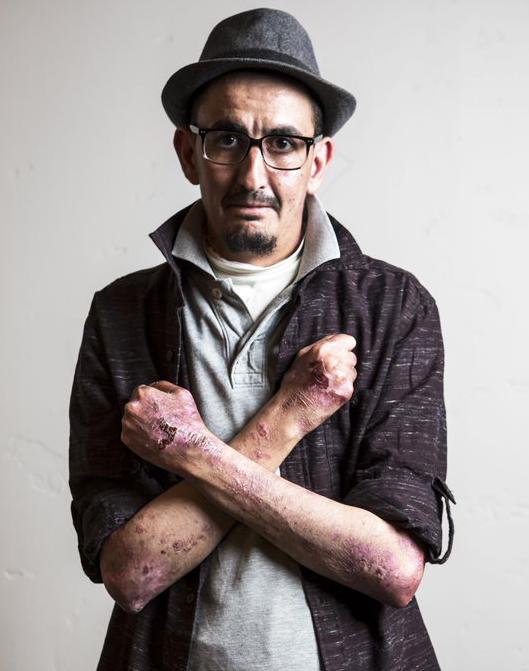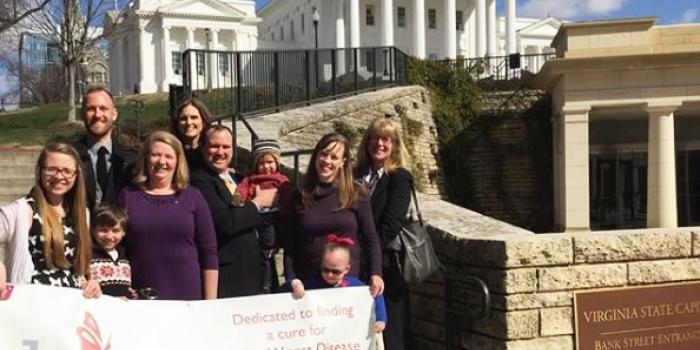Through our Legal Aid Program, we want to help you and your families best advocate for yourselves when any challenging issues arise.
Here you will find information to help develop strategies that will allow you to get the services your family needs and deserves.

We can help.
Has your health insurance denied you coverage for your wound care supplies, or your local education system not provided your child the assistance he/she needs to experience an appropriate education?
debra of America’s Legal Aid Program can provide you with resources to help you navigate these issues. Read below for ways to address some common challenges that arise for those impacted by EB, or email programs@debra.org with specific questions.
Common Topics
It is important for EB families to understand what educational rights they can rely upon for the betterment of their children's formal education. Students with Epidermolysis Bullosa (EB) in elementary and secondary schools are provided certain protections under federal law with regard to their right to receive a free and appropriate public education. In order for EB parents to make informed educational decisions for their children, local school districts provide staff resources and instructions for specific plans individualized for each child. A brief description of two relevant federal laws that apply to EB students are below.
Individualized Educational Plan (IEP): This plan is developed between the family and the school system to ensure that the child with Epidermolysis Bullosa (EB) attending elementary or secondary school receives specialized instruction and related services, which may include Occupational and Physical Therapy.
504 Plan: This plan is similar to an IEP and is developed to ensure certain accommodations are available to assist in the child's academic success.
IEP vs. 504 Plans
Some differences between the two laws and their implementation do exist. Not all students who have disabilities require specialized instruction. For those who do require specialized instruction, the Individuals with Disabilities Education Act (IDEA) controls the procedural requirements, and an IEP is developed. The IDEA process is more involved than that of Section 504 of the Rehabilitation Act and requires documentation of measurable growth. For example, with an IEP, a student who struggles with going up and down stairs may be given the goal of independently using the stairs. Physical therapy services would assist the student in achieving this goal.
For those students who do not require specialized instruction but need the assurance that they will receive equal access to public education and services, a document is created to outline their specific accessibility requirements. Students with 504 Plans do not require specialized instruction, but, like the IEP, a 504 Plan should be updated annually to ensure that the student is receiving the most effective accommodations for the student's specific circumstances. For example, a student with diabetes may be provided necessary time to monitor their blood sugar levels, yet the child does not need to meet a specific, measurable goal that the school systems assesses.
More information about these two important legal protections for disabled students can be reviewed by checking out the U.S. Department of Education's website relating to "Protecting Students with Disabilities," here.
Recommendations
School systems will work with you to collaboratively determine which program will work best for your child's needs. debra of America recommends that you request a meeting from your school administrator before entering elementary school to discuss the desired accommodations and services for your child and follow the specific school guidance. EB children have successfully operated under both an IEP or 504 plan in place.
If you need assistance to ensure that your child's rights are being followed, it is probably best to consult with a professional who understands these laws, such as a Special Needs attorney.
If you need assistance finding a special needs attorney or for more information, please contact debra of America at programs@debra.org or 833-debraUS (833-332-7287).
If you experience a denial of health insurance claim for wound care supplies or medical services from your private insurance policy, the following information can help address steps on how to appeal such a denial.
Receiving news that your insurance company has denied coverage for a necessary medical procedure or service, bandages, or supplies is a challenge many EB families unfortunately face. Given many changes in the health insurance industry as well as the high costs of necessary services and supplies, a denial of coverage can bring additional stress upon EB families. Described below is information to help families address instances where a health care denial has been received along with a sample letter which can be tailored to the specific instances of the insurance denial.
Steps to appeal an insurance denial of claim for a health care service or item:
- Carefully review the insurance company letter explaining the reasoning for the denial of coverage. The letter will need to cite specific provisions of the insurance policy.
- Read the cited insurance policy provision to determine if the policy has complied with the promised coverage item or service. Insurance policies are written by industry professionals, which can make understanding of their practical effects difficult. Take your time in reviewing the language.
- If you determine, the policy has not complied, an ambiguity in the policy exists, or a reasonable argument can be made for the item or service to be covered, contact the insurance company on the phone to seek an immediate resolution.
- If no resolution can be accomplished over the phone, request instructions on where a written appeal can be sent and what needs to be included within the written appeal.
- Make sure to pay attention to the time frames the insurance company requires for complying with filing a written appeal.
- Keep good records of all communications with the insurance company including the date and time of all communications, and the names, positions, and contact information of all insurance company representatives. A good practice is to maintain a copy of all communications in either or both a computer folder or physical filing system for easy retrieval to review.
- Be persistent in checking back periodically on the status of your appeal. The squeaky wheel often gets the grease and more attention will be paid to your appeal if the insurance company observes you are paying great attention to your appeal.
- Keep Joe Murray, debra of America's Director of Legal Aid, in the loop if you need further assistance in seeking to resolve your denial of insurance claim. We are here to help you develop a case for coverage of necessary services and items should your health insurance policy ultimately not approve the coverage.
Click here for debra of America's Denial of Insurance Sample Letter
Medicaid is a federal and state government partnership health insurance program for certain eligible individuals based on health conditions or income thresholds. Participants receive Medicaid as either their primary or secondary health insurance in conjunction with a private primary policy, and each state administers its own unique eligibility and benefits standards. Some states offer Medicaid to eligible participants through Waivers sometimes named the Katie Beckett Waivers and the Section 1915 (or Section 1115) Waivers. To review your state's waiver program, check out the State Resources website through the Centers for Medicare and Medicaid Services.
The Social Security Administration provides information about Social Security Disability Income (SSDI) such as:
- How to start
- How to qualify for SSDI and the benefits you will receive
- Finding your local Social Security Office
Visit www.ssa.gov for more information.
Federal law entitles eligible employees of certain employers to take unpaid leave to care for a serious health condition (like EB) of a family member without interruption of health insurance coverage. Specific details and guidelines are explained at the U.S. Department of Labor’s website.






